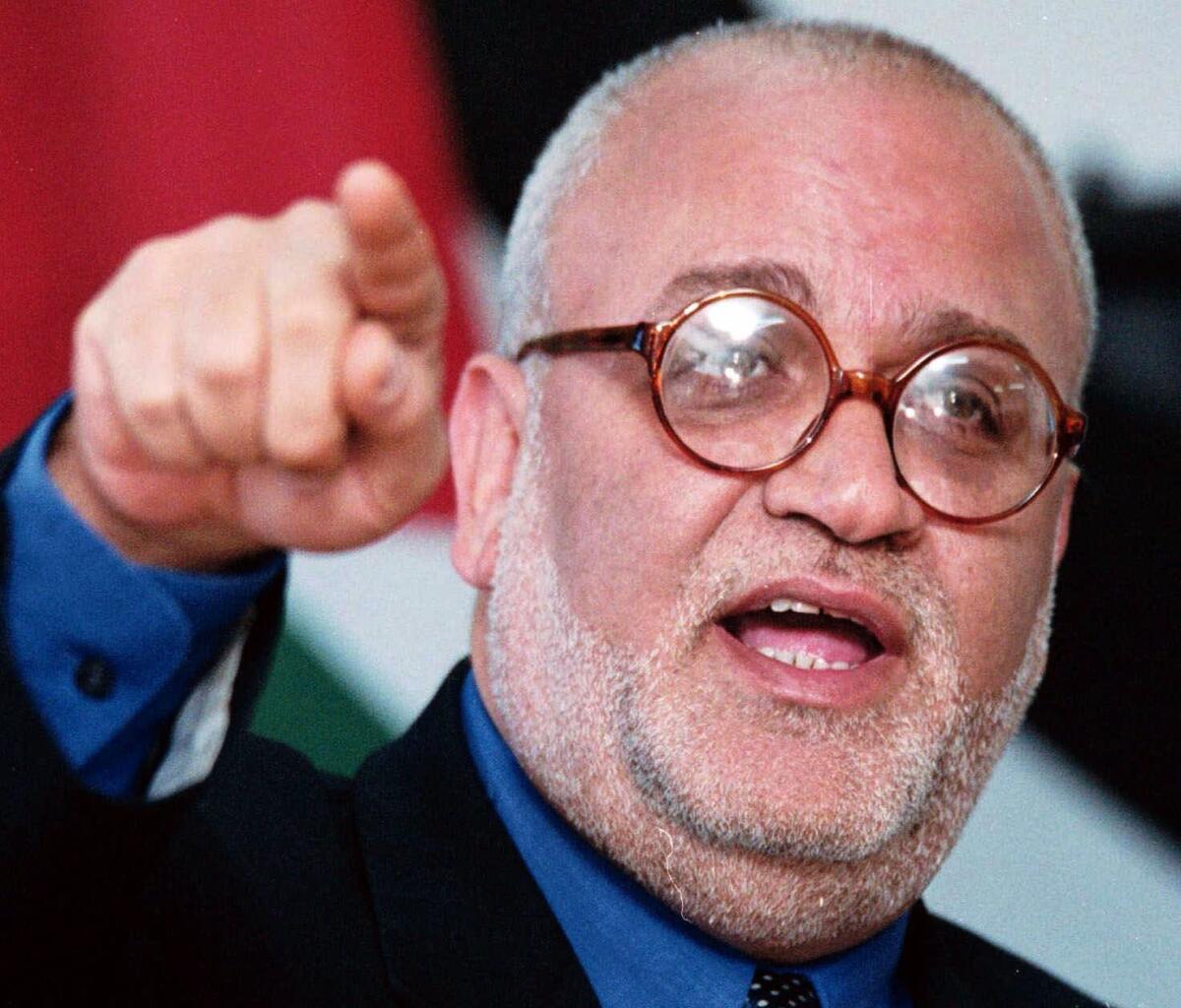Revered Palestinian negotiator Saeb Erekat awaits lifesaving lung transplant

Reporting from JERUSALEM — Saeb Erekat, the legendary Palestinian leader and chief negotiator with Israel for the last two decades, is renowned for his persistence against all odds and for a steel-trap legal mind.
But the challenge he faces today may be his most daunting. At 62, Erekar is suffering from advanced pulmonary fibrosis, a debilitating condition that can be cured only by a lung transplant.
He requested to be added to the waiting list in both Israel and the United States, but the odds are long. In Israel, Erekat, like other foreigners, will qualify for a donated lung only if it does not match the needs of any Israeli patient.
In recent months, friends and colleagues report seeing a steep deterioration in his health. Erekat has lost a significant amount of weight and appears in public tethered to an oxygen tank. He has admonished his associates to refrain from speaking about his condition.
Few people have been more crucial to the Palestinian cause than Erekat.
Uri Savir, Israel’s former chief negotiator for the Oslo peace accords, has known Erekat since 1994.
“Saeb is a brilliant man. A brave man. A man of peace, very moderate, with all the normal critique of the occupation,” he said. “I don’t think he’s really a political animal, but he ended up in a top leadership role because his particular talents were essential for the team.”
Those talents, said Savir, who is the co-founder of the Peres Center for Peace, include “an unusual gift for negotiation, an uncanny ability to formulate the precise lines necessary for a legal document — in this he is second to none — and an extremely rare ability to represent his leader, who was Yasser Arafat, and represent matters to him.”
Eighty-nine Israelis are on the waiting list for a lung transplant, said Dr. Tamar Ashkenazi, director of the transplant center at Israel’s Ministry of Health. Last year, 50 patients received donated lungs.
Ashkenazi said that in the event an available organ has no match in Israel, she will reach out to the deceased’s family and request special permission, above and beyond the legal necessity, to offer the organ to foreigners. Under similar circumstances, she once sent a child’s liver to Germany.
Erekat, who is of average height, suffers yet another disadvantage.
“I have no idea why, but we have many tall donors here,” Ashkenazi said, noting that height is a crucial factor for matching lungs. “A tall patient might wait two weeks, and a shorter person can wait two years.”
The order of transplant precedence is determined solely according to medical criteria.
Khaled Abu Toameh, an expert on Palestinian affairs who has known Erekat for 25 years, said his “illness has been an open secret. You could tell by looking at him.”
Erekat’s physical deterioration comes laced with irony. As his body has succumbed to illness, his political stature has only grown.
“For one,” Abu Toameh said, “It is important to underscore that his name has never been associated with corruption. Ever.”
“In recent years his position has gotten a lot stronger,” Abu Toameh said. “He’s become the leading candidate to replace Abu Mazen,” another name for Palestinian Authority President Mahmoud Abbas, 82. “Among Palestinians he is considered the most prominent symbol of the Oslo process, and he’s taken a lot of flak for being the flag bearer of ongoing negotiations and contacts with Israel.”
In part, Erekat’s popularity can be attributed to renewed Palestinian enthusiasm for the peace process he spearheaded. On Thursday, a poll released by Tel Aviv University’s Tami Steinmetz Center for Peace Research and the Palestinian Center for Policy and Survey Research showed that 52% of Palestinians in the West Bank and Gaza Strip supported the two-state solution, an increase of 8 percentage points since December. Fifty-three percent of Israelis, a decline of 2 points, agreed.
A peace process waiting for redemption may be awaiting only the renewed vigor of one of its most devoted proponents.
More to Read
Sign up for Essential California
The most important California stories and recommendations in your inbox every morning.
You may occasionally receive promotional content from the Los Angeles Times.









